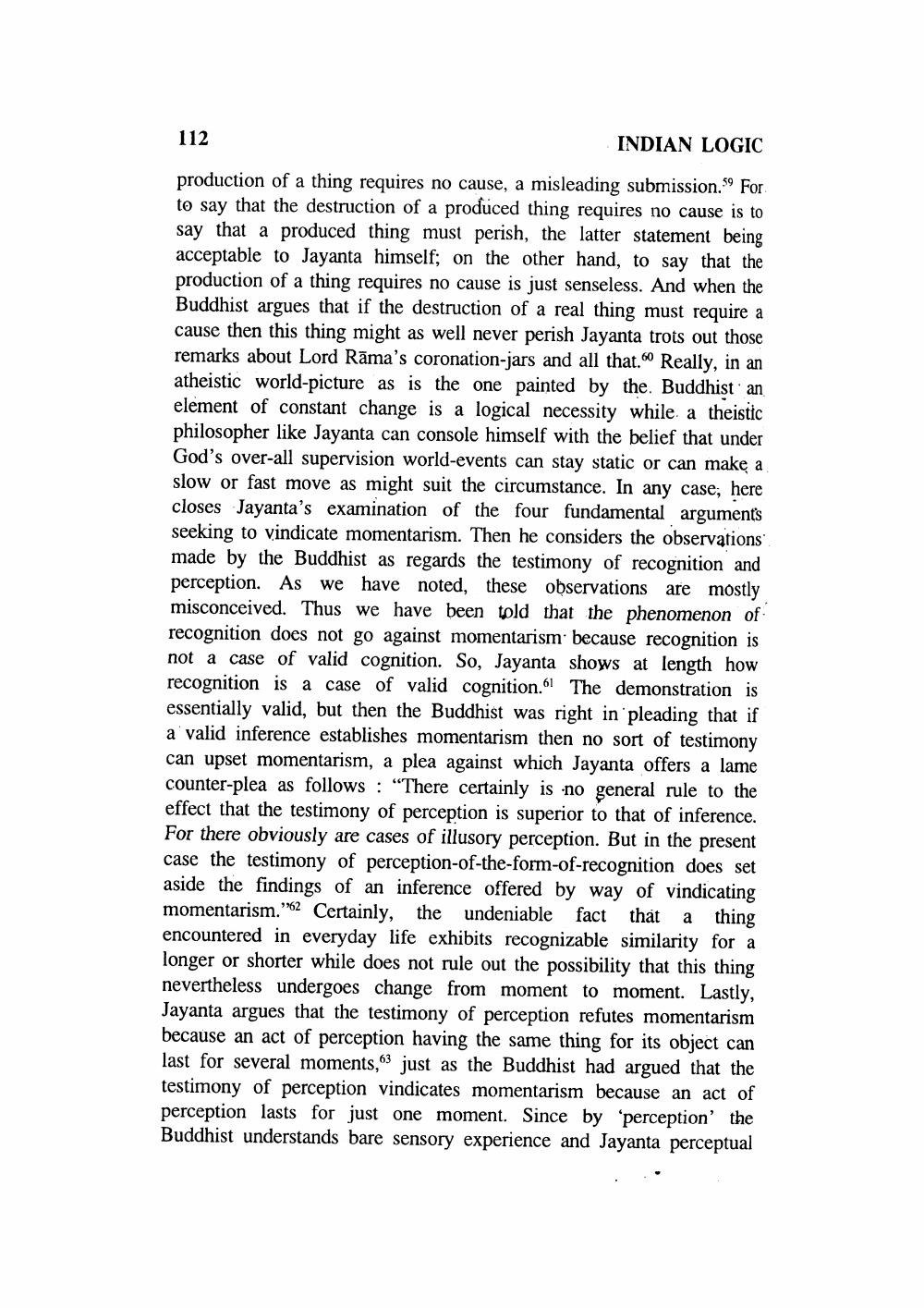________________
112
INDIAN LOGIC
production of a thing requires no cause, a misleading submission. For to say that the destruction of a produced thing requires no cause is to say that a produced thing must perish, the latter statement being acceptable to Jayanta himself; on the other hand, to say that the production of a thing requires no cause is just senseless. And when the Buddhist argues that if the destruction of a real thing must require a cause then this thing might as well never perish Jayanta trots out those remarks about Lord Rāma's coronation-jars and all that. Really, in an atheistic world-picture as is the one painted by the. Buddhist an element of constant change is a logical necessity while a theistic philosopher like Jayanta can console himself with the belief that under God's over-all supervision world-events can stay static or can make a slow or fast move as might suit the circumstance. In any case, here closes Jayanta's examination of the four fundamental arguments seeking to vindicate momentarism. Then he considers the observations made by the Buddhist as regards the testimony of recognition and perception. As we have noted, these observations are mostly misconceived. Thus we have been told that the phenomenon of recognition does not go against momentarism because recognition is not a case of valid cognition. So, Jayanta shows at length how recognition is a case of valid cognition. The demonstration is essentially valid, but then the Buddhist was right in pleading that if a valid inference establishes momentarism then no sort of testimony can upset momentarism, a plea against which Jayanta offers a lame counter-plea as follows: "There certainly is no general rule to the effect that the testimony of perception is superior to that of inference. For there obviously are cases of illusory perception. But in the present case the testimony of perception-of-the-form-of-recognition does set aside the findings of an inference offered by way of vindicating momentarism.”62 Certainly, the undeniable fact that a thing encountered in everyday life exhibits recognizable similarity for a longer or shorter while does not rule out the possibility that this thing nevertheless undergoes change from moment to moment. Lastly, Jayanta argues that the testimony of perception refutes momentarism because an act of perception having the same thing for its object can last for several moments,63 just as the Buddhist had argued that the testimony of perception vindicates momentarism because an act of perception lasts for just one moment. Since by 'perception' the Buddhist understands bare sensory experience and Jayanta perceptual




